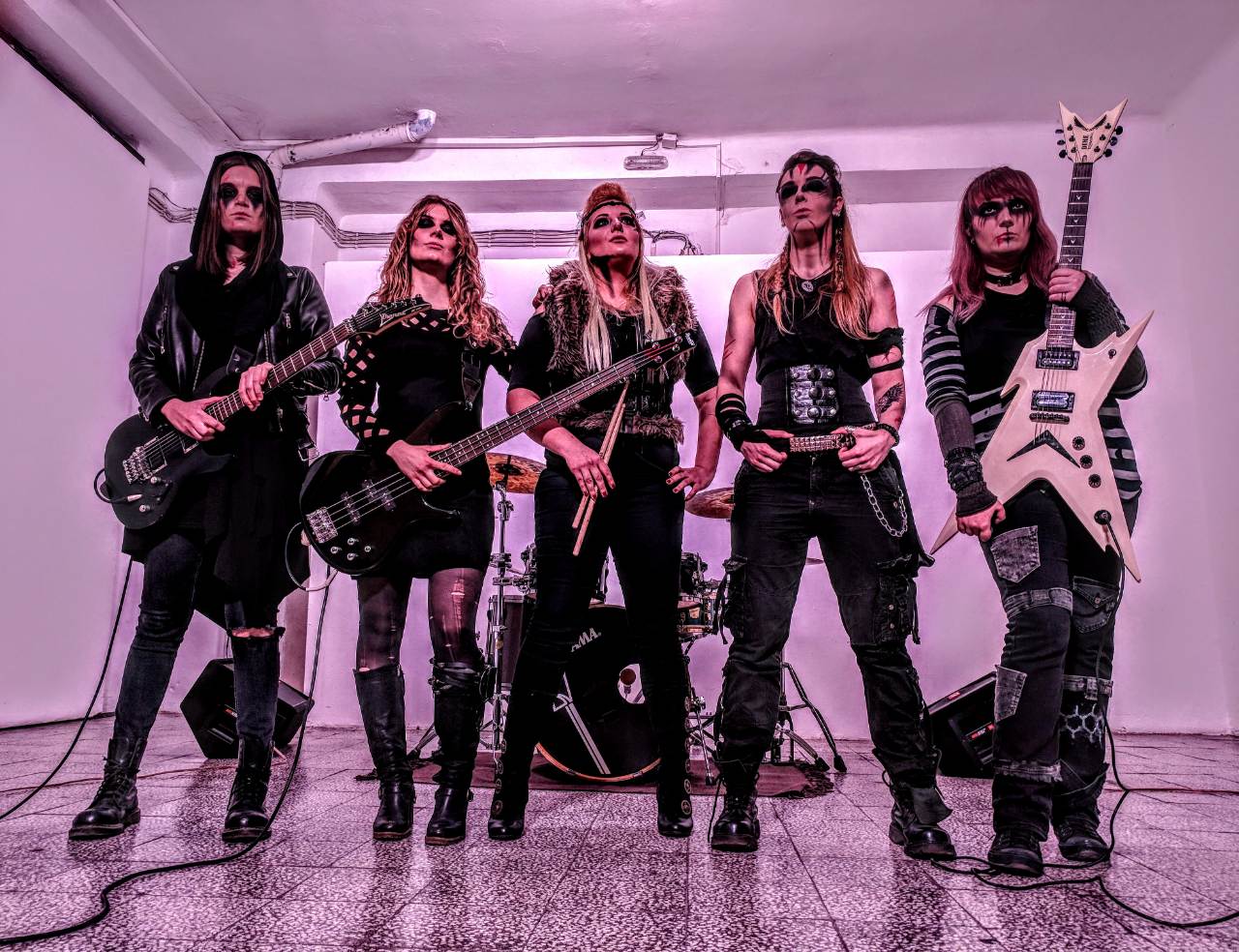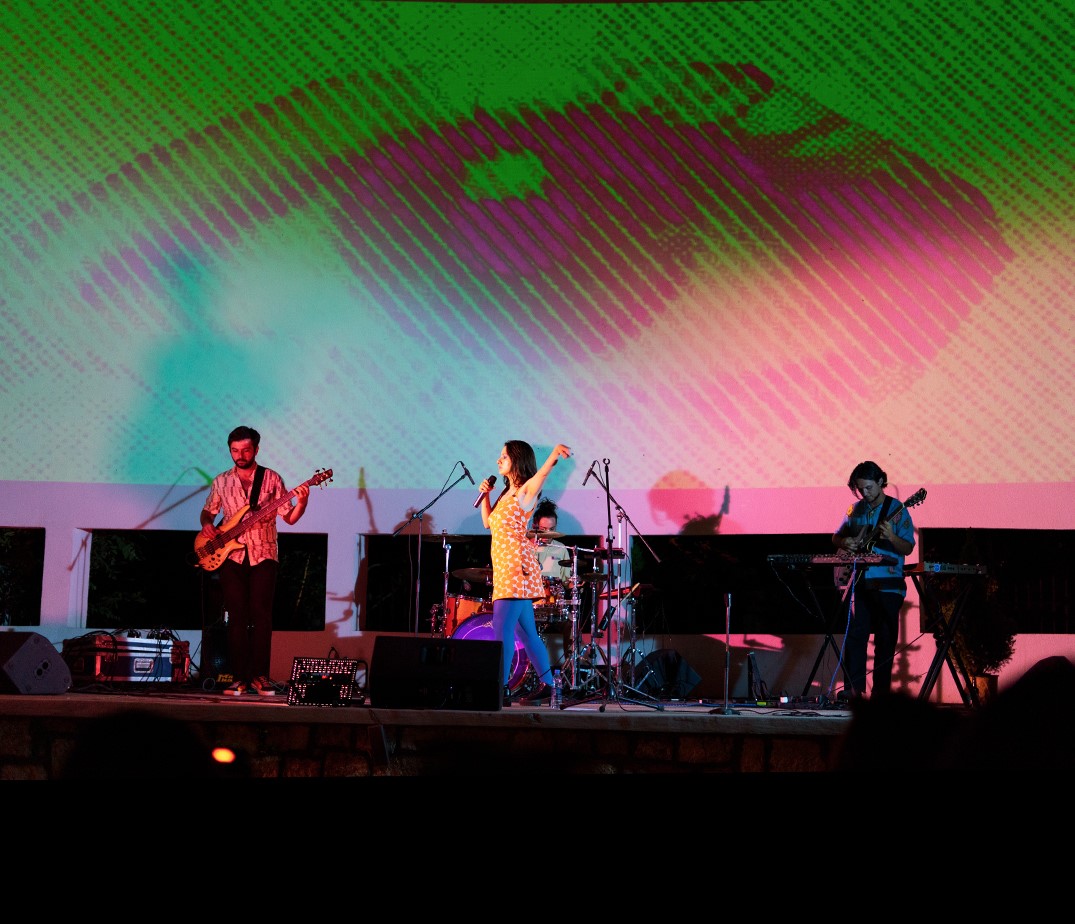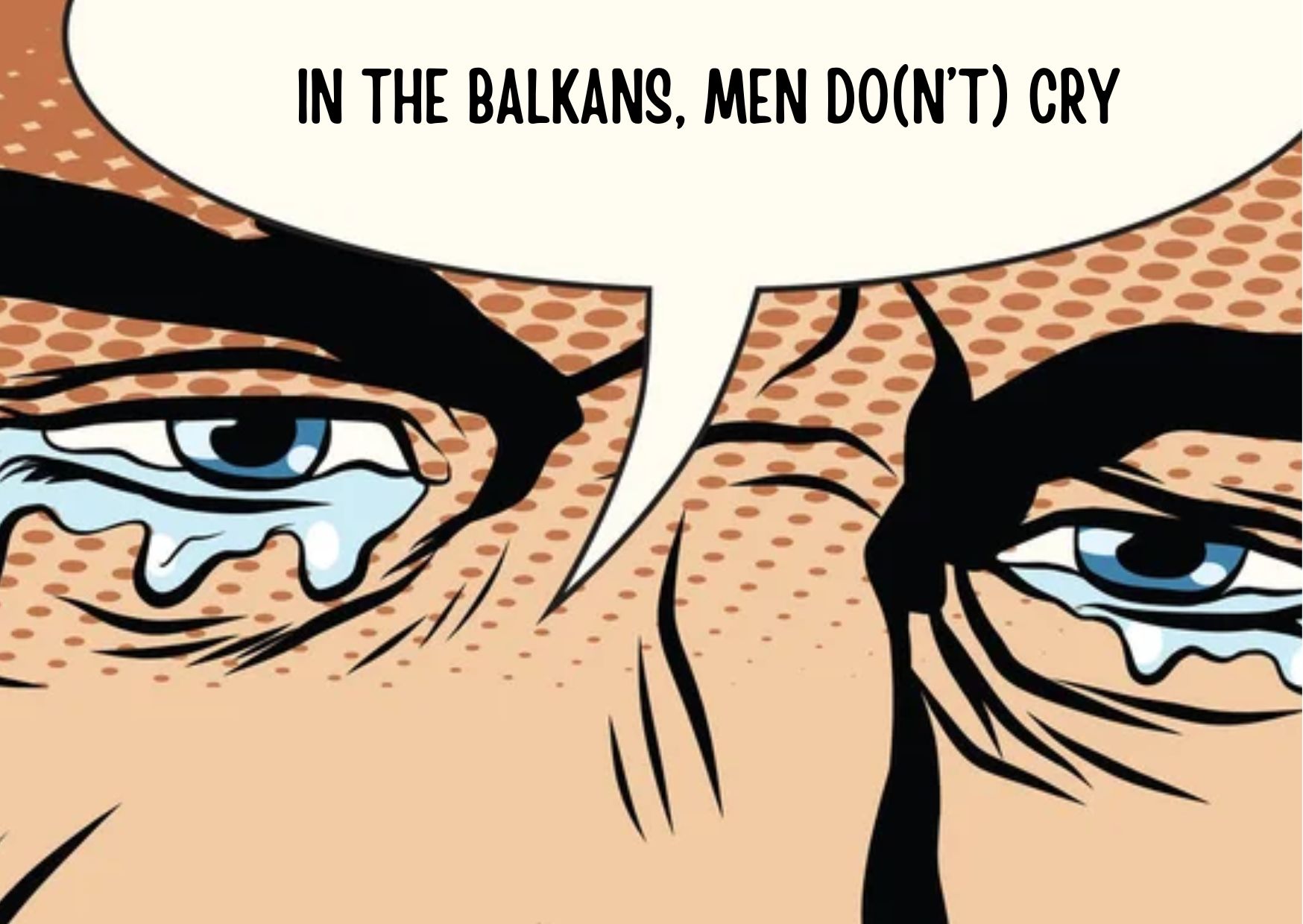From the revolutionary feminist punk movement Riot Grrrl to this day, women have been breaking gender stereotypes and demanding their place in the world’s alternative music scene. If we point the compass to the regional scene, and wind the clock to the present, we will notice that, after all, this industry is still a predominantly male world, and even though there are numerous high-quality female musicians, they are either not heard enough, or they are facing stereotypes and prejudices in their career.
The cultural scene, music scene, and especially the alternative scene, are expected to be the space for democracy, openness, participation, and equality. Discrimination, prejudice, and beauty standards for young girls and women, on the other hand, have existed for a long time. And this raises the question: what is the conflict between these two phenomena: feminism and alternative music? Why does inclusion differ so dramatically when both preach about equal treatment, acceptance, emancipation, rebellion against the “tyrant”, and so on?
Tatjana Nikolić, Femix women’s creativity support program activist and author of the research Gender Relations Within the Alternative Music Scene of Serbia and the Balkans, shared with Hajde her insights on this topic.

Tatjana Nikolić, Femix women’s creativity support programme activist and author of the research Gender Relations Within the Alternative Music Scene of Serbia and the Balkans; Source: Private achieve
– It is well known what spaces are for girls, boys, women, and men, and in that distribution of gender roles, alternative music is positioned as a male field. As a society, we have a need to preserve the idea of that space as masculine, and therefore even when we have amazing female artists, we either suppress and ignore them, or we emphasize them as some first, only, special, different ones. And by that we actually cut them off from those who preceded them, from those active at the moment and those who are yet to come, which is another tool of that implicit, subtle patriarchy that still exists – Tatjana explains.
One of the phenomena is women's engagement in alternative music, where the number of women in music groups around the world and in the region is sadly low. According to Huffington Post research conducted in the USA from 2012 to 2016, with the discourse of 10 different music festivals, women make up only 12% of bands, while men make up 78%. Results of the research Gender relations within the alternative music scene of Serbia and the Balkans have shown that, in Serbia, there are on average 8 times more male than female names amongst artists who create their own work, while the 5-year average prevalence of women on musical festivals in Serbia from 2009 to 2013 is 11.6%.
- Overall, the data shows an inequality at the expense of women, an asymmetry about who we expect on the alternative scene, rock, electronic, jazz scene, not to mention metal genres. The obstacles they face are often not explicit, but subtle, and that is exactly the problem – they are not so easy to catch or prove. It is often thought that girls are not interested in rock music, that they are not brave enough for it, and then we ask the question – what is it that they are afraid of, why at all there is something to be afraid of and why do they need to have some special courage to be part of the scene – stated Tatjana Nikolić.
Sexism toward women in alternative music manifests itself in overt ways, such as undervaluing professional women, songwriters, and group members, as well as in subtle ways, such as commentary like “She can't play that instrument”, etc. Sanja Drča, frontwoman of the all-female death metal band Nemesis, says for Hajde that, even though they are now well-accepted and acclaimed at the scene, at first they felt a lot of pressure to ’prove themselves.
-1650046297.jpg)
Sanja Drča, frontwoman of the band Nemesis; Author: John Wolfrik
- At some of our first gigs, we felt more pressure than a male band would because we knew that a lot of people were there just waiting for us to make a mistake so they would be able to say ‘yeah, you see, I knew it, this is not for a woman’ etc. In some ways, this may have even motivated us to prove even more that death metal is simply a music genre, not particularly masculine or feminine – stated Sanja Drča.
Sanja’s bandmate and drummer of Nemesis Selena Simić say that, in her opinion, our whole region is not at the level of emancipation where it can function outside of stereotypes, and adds that she herself has faced prejudices and stereotypes in her career.
- As a drummer, personally, I had a few inconveniences in my career - some people didn’t believe I play drums at all, some called me names because of that, some entitled me with some identities that don’t necessarily exist, just because I play drums. But I try to pay less attention to it and to dedicate my energy to those who can perceive me normally aside from playing drums – stated Selena.

-1650046434.jpg)
Band Nemesis; Source: Private archive
Nita Kaja, the vocalist of the band SYTË, recounted her experience as a young female artist in Kosovo's alternative music scene. Nita, who was born and raised in New York, says she has always felt a special connection to her parent’s homeland and returned to Kosovo, where she met other members of the group.

Band SYTË; Author: Esad Duraki
 (1)-1650046620.jpg)
Band SYTË; Author: Loren Jupolli
- Alternative music is one of the reasons I moved to Kosovo, and it has always been a dream of mine that one day I will have my own band. So far, I've had a very positive experience with our audience, and I try to be as close as possible to all of those who enjoy SYTË's music – explains Nita Kaja.
She adds she hasn't gotten any harsh or sexist comments but claims it would have been far more difficult if she had been a single artist.
- So far, thankfully, I haven't gotten any unpleasant or sexist comments. But I believe it has something to do with the fact that I am part of a group of three respectable men; perhaps it would have been different if I had been a single artist... Each member of the group contributes equally, and after all my part is the group's spotlight – Nita added.
Her message to young girls is to always pursue their dreams, no matter what obstacles they may face, and to remember that we only have one life, and it is not worth living it with regret.
-1650046750.jpg)
Nita Kaja, Band SYTË; Author: Fikret Ahmeti
However, sexism does not only affect female artists; it also affects girls and women fans who, in addition to not being recognized as genuine music enthusiasts, are assumed to be engaging in performances or displaying interest in groups solely to get male attention, or they are given the identities and attributes they don’t necessarily have.
- In our society, there is a misconception that girls who listen to this type of music are ‘depressed’ or ‘aggressive’, which is not true at all – says D. F., a twenty-year-old alternative music fan from Kosovo.
Music journalist Ljiljana Zdravković points out the importance and responsibility the media has in terms of fighting these kinds of stereotypes.
 (1)-1650046885.jpg)
Ljiljana Zdravković, music journalist; Author: Bojan Stevanović
- It would never occur to me, or to my parents when I was a kid, to tell me „why wouldn’t you play the drums“. I want to make as many girls as possible realize that they have a chance and they have a choice. If you have rhythm and you would like to make music, it’s up to you to decide to start doing it. In that sense, the media needs to show them that they have a choice. To tell them, if you want to play drums, the fact that your friends or family may think that’s not cool – what do you care about? Sit and play the drums – says Ljiljana Zdravković.
Tatjana Nikolić, author of the research Gender Relations Within the Alternative Music Scene of Serbia and the Balkans, says that, when it comes to developing the sensibility towards gender equality and representation of female artists, the responsibility is on the media, as well as on all of us individually.
– Many people say everything starts from home, but a lot also comes from the media, social networks or peer groups. Each of us has a part of the responsibility, each of us should re-examine our own behaviors, thinking patterns, decisions and towards which direction we are pushing this society with these decisions – concluded Nikolić.
 (1)-1650046971.jpg)
-1651580184.jpg)








